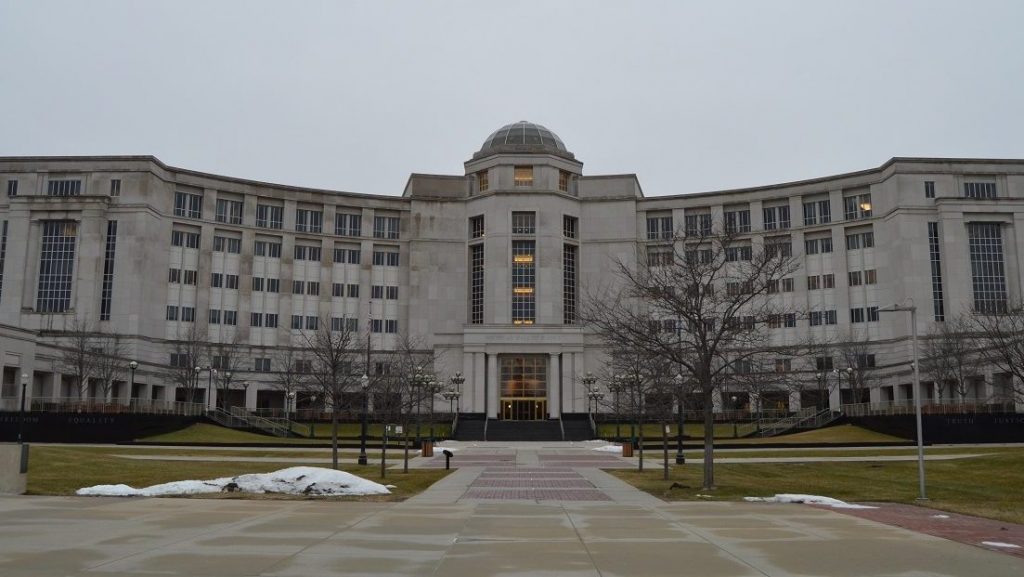MichMash: When State Systems Fail–Your Right to Sue Could Be Ticking Away
Cheyna Roth and Jake Neher talk about a computer glitch that caused the state to wrongfully accuse tens-of-thousands of unemployment fraud.

Michigan Supreme Court

The Michigan Supreme Court will decide whether tens-of-thousands of people can sue the state after being wrongly accused of unemployment fraud.
The state took money from those residents’ tax refund or ordered them to re-pay benefits. That was after a problem with the state’s automated system.
Michigan wants the case thrown out – they say the lawsuit was filed too late.
As part of the weekly series MichMash, Cheyna Roth and Jake Neher talk about how this case could affect anyone in Michigan who’s ever ignored a piece of mail.
Click on the audio player above to hear that conversation.
At one point during the arguments this week, Justice Richard Bernstein questioned the logic of the state’s argument — that the case should be dismissed because the plaintiffs filed their lawsuit after their property was taken away, not when they first got notice of the fraud accusation.
“My question to you, is that really sensible?” asked Bernstein. “Wouldn’t it be fairer for a citizen to look at it and say, wow, this is a mistake, I better try to figure this out and try to get this handled and figure out what took place and just get myself back in order so I don’t lose my house and my car…before I figure out what my recourse is going to be?”
David Reinke from Novi hopes to join the lawsuit if it goes forward. He says he was excited to hear Justice Bernstein grilling the state.
“I thought, wow, somebody gets it! Somebody actually gets it!” said Reinke.
Jennifer Lord, an attorney for the plaintiffs, says the wrongly accused deserve to be paid back for all of their losses.
“Unfortunately we had a lot of consequences damages with respect to the bankruptcies, with respect to people becoming homeless, with respect to people losing their cars, their credit ratings tanking,” she said.
She says, if the case goes forward, anywhere between 20,000 and 40,000 people could join the lawsuit.
Michigan Solicitor General Aaron Lindstrom represented the state in the arguments before the Supreme Court. Lindstrom says the wrongly accused needed to file a lawsuit when they got the first fraud accusation – not when the state started to take their money.
“This is not a bar that I made up or my office or even the Unemployment Agency made up,” he said. “This is something the Legislature adopted.”
